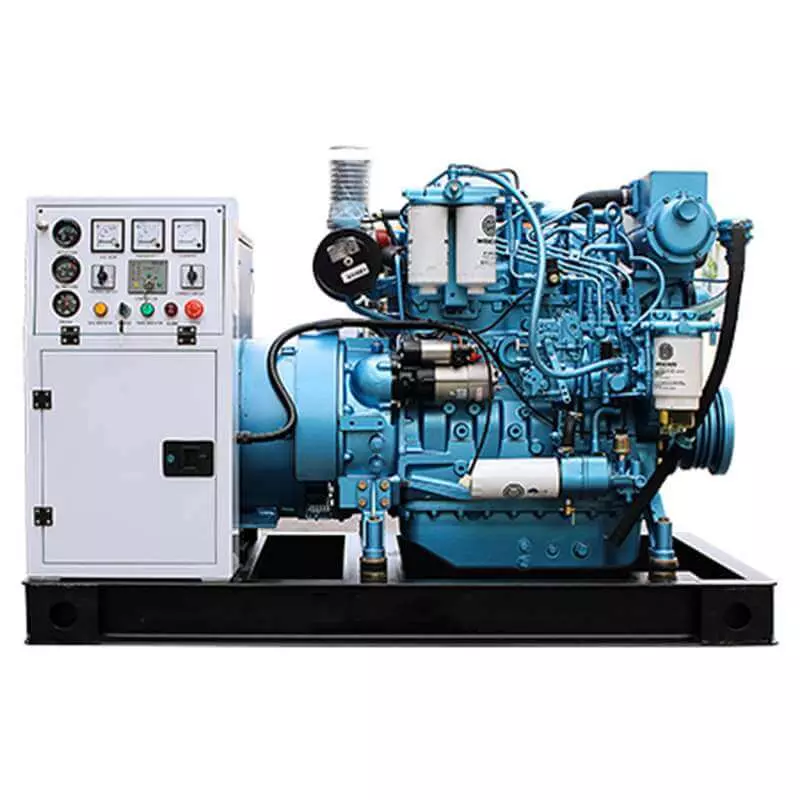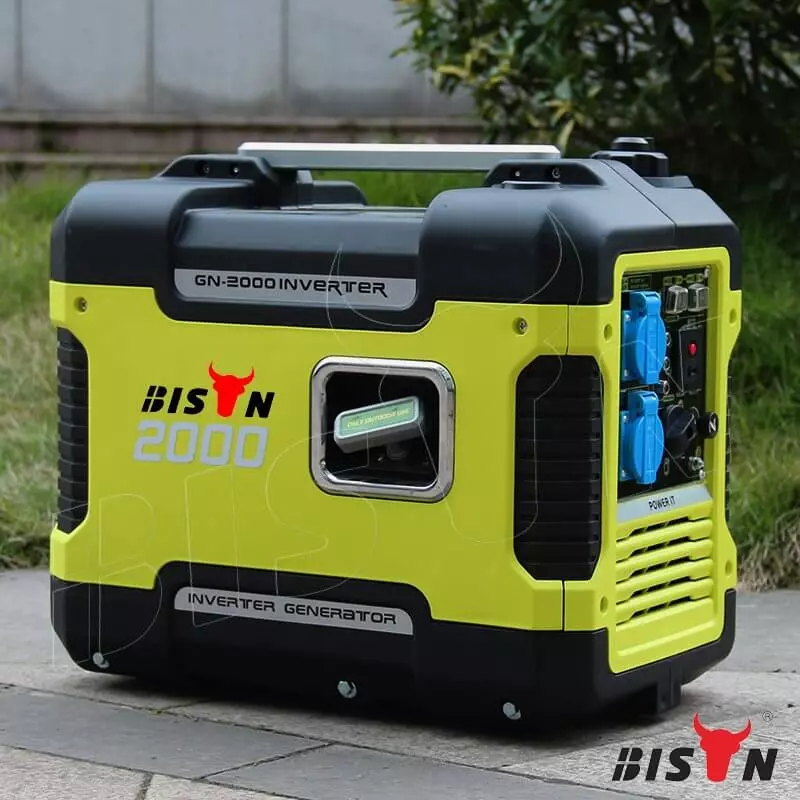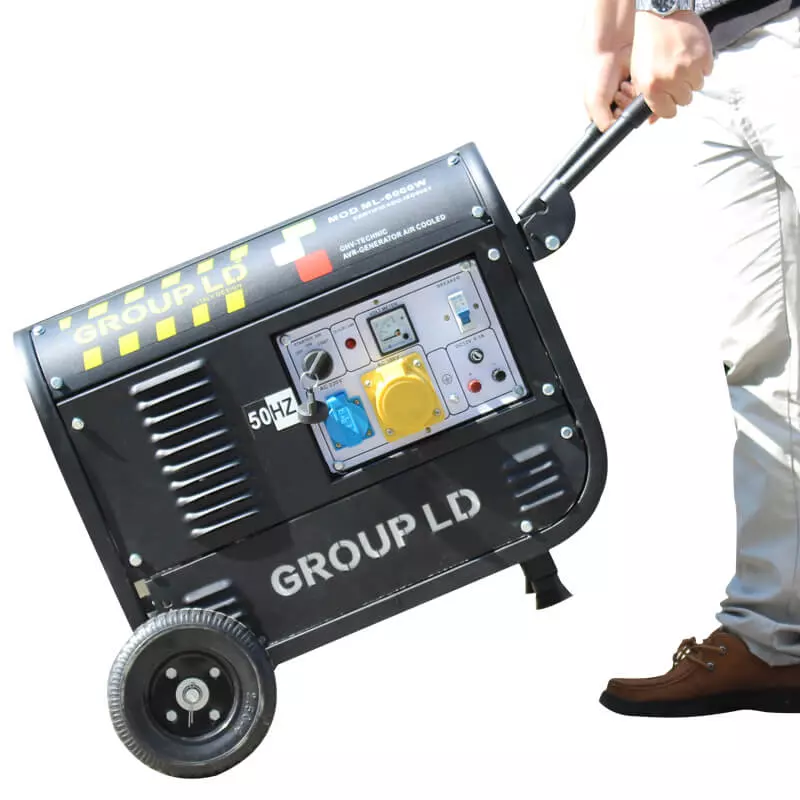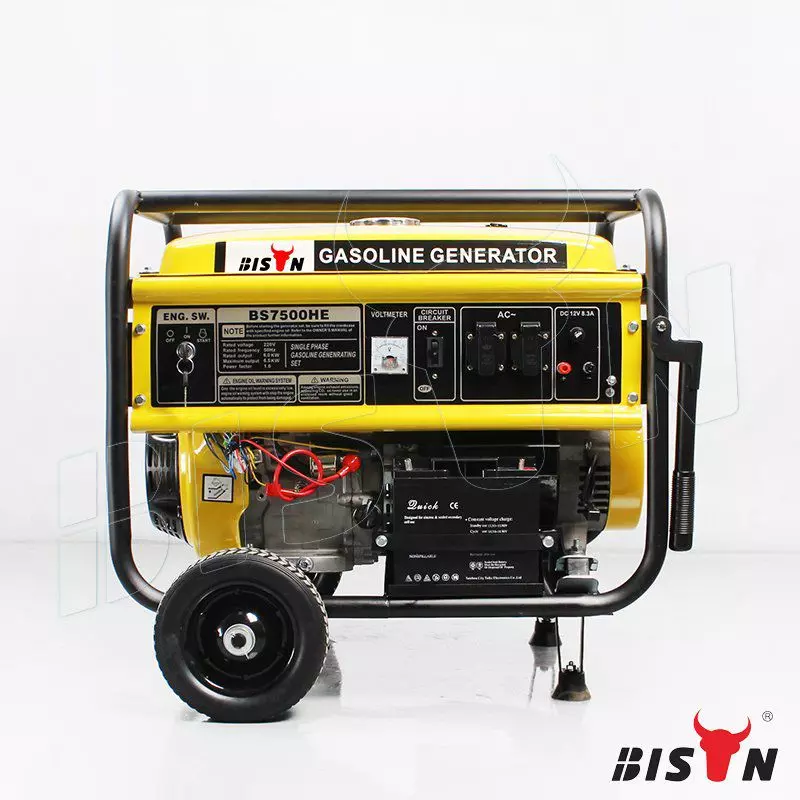How far should generator be from house
2022-11-11
Table of content

Keeping the generator at the proper distance from the residence is a crucial aspect of dealing with generators.
Generators should typically be placed at least 20 feet away from a house.
In addition, a window or door should not be in any way or even partially blocked by the generator exhaust pipe.
Improper placement can cause huge problems, including improper cooling and overheating, and in addition, it can greatly affect your health.
Factors to consider when placing a generator
There are more considerations than the minimum distance when deciding how far the generator should be from the house. Here are a few things to consider when deciding on the location and distance of generators:
Fuel type
If the generator runs on natural gas, it should not be placed too far from the gas meter. If the generator is too far, more pipes will be required. This will cost more money in materials and labor and even lead to inconsistent gas supply.
Exhaust direction
During power generation, fuel combustion emits harmful gases. So, it would be best if you placed the exhaust away from the house; that's what determines how far the generator needs to be a safe distance away from windows. Ensure the wind doesn't carry the gas back into the house through the windows. Placing the exhaust in the opposite direction will blow the smoke away from the window.
Noise level
A generator with the lowest noise level is recommended. Since all generators generate some level of noise, you can reduce the impact of the sound by keeping the generator away from the house.
Size of the generator
How big your entire generator is will determine how much noise it makes, the size of the fuel storage tank it may need, and the type of support system it needs to stand in one place. All of this will ultimately determine how far you place the generator.
Also, you must consider the enclosure size required for the generator and whether it can be accommodated on your property. Generally speaking, the larger and heavier the generator is, the larger and thicker the concrete base is needed to support its weight.
A general rule of thumb is that the depth of the concrete pad should be 125% of the unit's wet weight, which takes into account both the generator and the fuel.
Generator placement tips
Forget running the generator in the rain
The performance of a device can be greatly impacted by rain, which can also harm internal parts. You can choose to purchase a generator tent if you need it. They have a good level of protection while not interfering with normal air circulation, which is actually very important.
Consider fuel
When you install a home generator, consider how often you will use it. If it's been working - see the chance you'll run out of gas at the most inopportune moment. Fuel should be kept cool and out of direct sunlight.
Carbon monoxide safety technology
Modern generator models, while expensive, have useful functions for determining carbon monoxide levels. If the concentration of the substance exceeds the standard, the generator will shut down in emergency mode.
Put the generator on level ground
The generator vibrates when it is running, so it makes a lot of noise. The noise will be louder if the generator is not placed on a level floor. It is also possible to trip the generator if placed on uneven ground; this can spill fuel and be dangerous. Therefore, always make sure to place the generator on a level floor.
Make sure the floor is dry
It would help if you stored all electrical equipment in a clean, dry place as water is a good conductor of electricity, and moisture or water can cause a short circuit inside the machine; this also applies to generators. It can cause generator failure, complete breakdown, or even lead to electric shock or electrical fire. Therefore, always place the generator on a dry floor to avoid dangerous situations.
Do not disturb others
When installing a generator, the well-being of your neighbors must be considered. Please don't place the generator too close to your neighbors as it will generate too much noise and heat.
How far the generator should be from the house also applies to neighboring houses. Your neighbors can even sue you in the event of a riot. If there is a fireplace around the generator, change the generator's location, as it can create a fire hazard.
Hazards associated with a generator
Without a doubt, a generator is a must for any homeowner who wishes to run their equipment when the main power goes down. However, these devices are not 100% secure. For this reason, it's best to understand the danger they pose to protecting yourself, your loved ones, and your neighbors.
1. Carbon monoxide poisoning
Carbon monoxide poisoning occurs when people inhale odorless and colorless carbon monoxide gas for an extended period of time. Every year, approximately 50,000 people need medical attention due to accidental carbon monoxide poisoning. About 430 of them will die. You might not realize that portable generators contribute a lot to these numbers. 85% of carbon monoxide fatalities come from generators.
Because generators contain internal combustion engines that partially burn fuel, they also produce carbon monoxide. Therefore, you need to pay attention to where the exhaust system of the entire home generator is facing.
If it's too close to your home, you're in danger. But if it's too close to your neighbor's property, they'll get in trouble. But because they usually stay outdoors, they pose less danger than portable versions.
2. Air pollution
Air pollution is another concern when considering a generator installation. It damages the environment by increasing emissions and health problems in the human population.
In general, diesel and gasoline generators produce more pollution than propane and natural gas generators, and this is something to keep in mind.
3. Noise pollution
Many types of generators are synonymous with noise. Unfortunately, prolonged exposure to noise is bad for your health. Studies have shown that people exposed to excessive noise levels above 70 decibels for extended periods of time may experience hearing loss in the future. Any sound above 120dB can instantly damage your hearing.
Generally speaking, a silent generator will produce 75-85dB of noise at a distance of one meter. But most produce 60-70dB noise from about 23 feet away, which is tolerable and relatively safe, even for extended periods of time.
So when considering how far to install, it's best to consider your hearing and how noise pollution from generators can affect it.
4. Electric shock
Generators are used to generate electricity. Under some circumstances, they can shock and electrocute you. If you expose the generator to water, you could get electrocuted. Therefore, it promotes electrocution. It is best to avoid any wet areas when installing the generator.
Another source of shock comes from the overlapping of generators and main power throughout the home. If your generator turns on when the main is restored, it can cause backfeed.
During this process, the current will be forced to flow in the opposite direction, re-powering power lines away from your home. When this happens, utility employees or anyone else handling the line could be electrocuted. Additionally, neighbors sharing the same transformer can also be victims.
5. Explosions and Fire
Generators can end up causing fires and explosions for various reasons, so you should choose the best installation location.
First, overloading generators can lead to explosions and fires. Also, if you use the wrong cables to connect generators to your existing electrical system, they can overheat and start a fire. If flammable items are nearby, the fire could spread quickly, and you could lose your home.
In addition, generator parts tend to be hot when the equipment is in use and immediately after it has been switched off. Therefore, they can cause severe burns if you come into contact with them.
Fuel is also a concern. If you store fuel near flammable materials, generators, or other fuel-burning equipment, it may increase the rate at which the fire will spread. Also, using too much fuel in the generator can explode, start a fire, and cause serious damage.
FAQs
1) How far should my generator be from my camper?
Campgrounds often limit loud sound production, especially during designated quiet hours. Therefore, the distance between campsites can limit the distance between the portable generator and the camper. Since your camper is more like your home while camping, you need to consider it your living space and follow the manufacturer's recommendations to place the generator in the right location. However, ensure you don't let the noise and exhaust from your generator intrude into the tranquillity of other campers. Maintain a safe distance between generators and campfires to avoid possible fire hazards.
2) How far does the generator need to be from the window?
According to local regulations, generators must be kept at least 5 feet away from windows to reduce the impact of harmful fumes from generators on the interior of the building.
3) How far can the generator be from the transfer switch?
Generators are generally safe within 60 – 70 feet of the transfer switch. This helps reduce the excessive loudness of the generator and provides safe switching.
4) How close a generator be to an AC unit?
Since most AC and HVAC units are typically within 5 feet of the house, placing generators near them is not recommended. However, if your air conditioner is more than 20 feet away from your home, your generator should be at least 3 feet away from it. The same goes for utility meters and any other large repairable appliances.
5) Can I run my generator on the porch?
It is strongly recommended not to run generators in your home or anywhere in your home. This includes porches, patios, sheds, garages or any seating area. The dangers posed by portable generators are too great. Even in open areas, carbon monoxide can accumulate enough to pose a significant health hazard. Also, if your generator somehow falls over, the threat of fire is very high. This is why keeping the generator a minimum safe distance of 20 feet from your home is recommended.
6) Can the generator run in the rain?
With a portable generator, running in the rain is unsafe unless you have adequate cover. Portable generators produce very high, powerful voltages when in use. If the outlet gets wet or water seeps into the generator's engine, the potential for electric shock or explosion is very high. If you are forced to run your portable generator in the rain, you must use a cover specially designed to keep it dry.
Conclusion
When installing a generator, it is important to know the correct distance between the generator and the house. If you are unsure about something, follow safety standards and contact a professional. Proper placement will keep you safe from harmful exhaust fumes and noise. For this, you must keep the generator away from your house.




